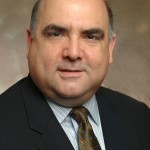Emory doctors are leaders in a “destination†therapy program using ventricular assist devices for failing hearts.
The United Network for Organ Sharing says there are more than 2,900 Americans, 43 in Georgia, who are awaiting a heart transplant. Regardless of the number of donor hearts available, however, many patients are not candidates for a heart transplant for a variety of reasons including cancer, personal and religious beliefs, blood clotting problems, and other debilitating health conditions.
Right now there are about 5 million Americans who suffer from congestive heart failure, with another half million diagnosed each year. Many individuals are limited by the severity of their heart failure, yet are not able to be transplanted for one of many reasons.
With so many people awaiting precious few donor hearts, doctors are working to provide access to Ventricular Assist Devices (VADs). VADs are small pumps that are implanted into the chest cavity and help pump a heart that is no longer able to function properly on its own. This offers new hope and a greater quality of life for individuals who are not transplant candidates, patients who do not want a transplant or for people who may be transplant eligible in the future.
Many patients use VADs as a bridge to transplant – meaning they rely on the device temporarily until a donor heart can become available. Others are candidates for VADs as destination therapy, which means a patient is not a candidate for heart transplant or simply does not want a heart transplant – often because of religious or personal ethical reasons.

David Vega, MD
David Vega, MD, professor of surgery, Emory University School of Medicine, and director of Heart Transplantation/Mechanical Circulatory Support at Emory University Hospital, leads the pioneering VAD program. He says VAD destination therapy allows patients to resume many basic activities that they were unable to perform before the VAD.
Recently, Emory University Hospital’s VAD program recently the “Gold Seal of Approval†from The Joint Commission, which accredits nearly 16,000 health care organizations and programs in the United States. Emory’s VAD program is the only certified program of its kind in Georgia. Learn more about Emory’s heart transplant program and its 500th patient.




